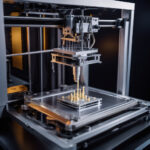Harnessing the Potential of Mixed Plastic Waste through Mechanical Recycling
In today’s world, the issue of plastic waste has become a pressing concern. The accumulation of plastic in landfills and oceans is causing irreparable damage to our environment. However, amidst this crisis, there is a glimmer of hope in the form of mechanical recycling. This innovative process is revolutionizing the way we deal with plastic waste, turning it into valuable products while promoting sustainability and reducing pollution.
Mechanical recycling involves the sorting, cleaning, and processing of plastic waste to create new products. Unlike traditional recycling methods that can only handle single types of plastics, mechanical recycling can handle mixed plastic waste. This flexibility makes it a game-changer in the fight against plastic pollution.
One of the key advantages of mechanical recycling is its ability to transform mixed plastic waste into high-quality materials. By breaking down the plastic into its basic form, mechanical recycling allows for the creation of a wide range of products, including packaging materials, textiles, and construction materials. This not only reduces the amount of plastic going to landfills but also helps conserve valuable resources.
Furthermore, mechanical recycling plays a crucial role in promoting sustainability. By reusing plastic waste to create new products, this process helps reduce the demand for virgin plastics, which are derived from fossil fuels. This, in turn, contributes to lower carbon emissions and energy consumption, making mechanical recycling a more environmentally friendly option.
Moreover, mechanical recycling offers a cost-effective solution to the plastic waste problem. Unlike other recycling methods that require significant investments in infrastructure and technology, mechanical recycling can be implemented on a smaller scale, making it accessible to a wider range of organizations. This scalability makes it an attractive option for businesses looking to reduce their environmental impact without breaking the bank.
One notable example of the success of mechanical recycling is the partnership between leading companies and research institutions to develop innovative recycling technologies. By investing in state-of-the-art equipment and processes, these organizations are able to extract maximum value from mixed plastic waste, creating a circular economy that benefits both the environment and the economy.
In conclusion, mechanical recycling is a powerful tool in the fight against plastic pollution. By harnessing the potential of mixed plastic waste, this innovative process is transforming the way we view plastic, turning it from a problem into a solution. As more companies and organizations embrace mechanical recycling, we can look forward to a future where plastic waste is no longer a threat to our planet, but a valuable resource that drives sustainability and innovation.
The post Harnessing the potential of mixed plastic waste through mechanical recycling appeared first on Innovation News Network.
#plasticwaste, #mechanicalrecycling, #sustainability, #innovation, #pollutionreduction









